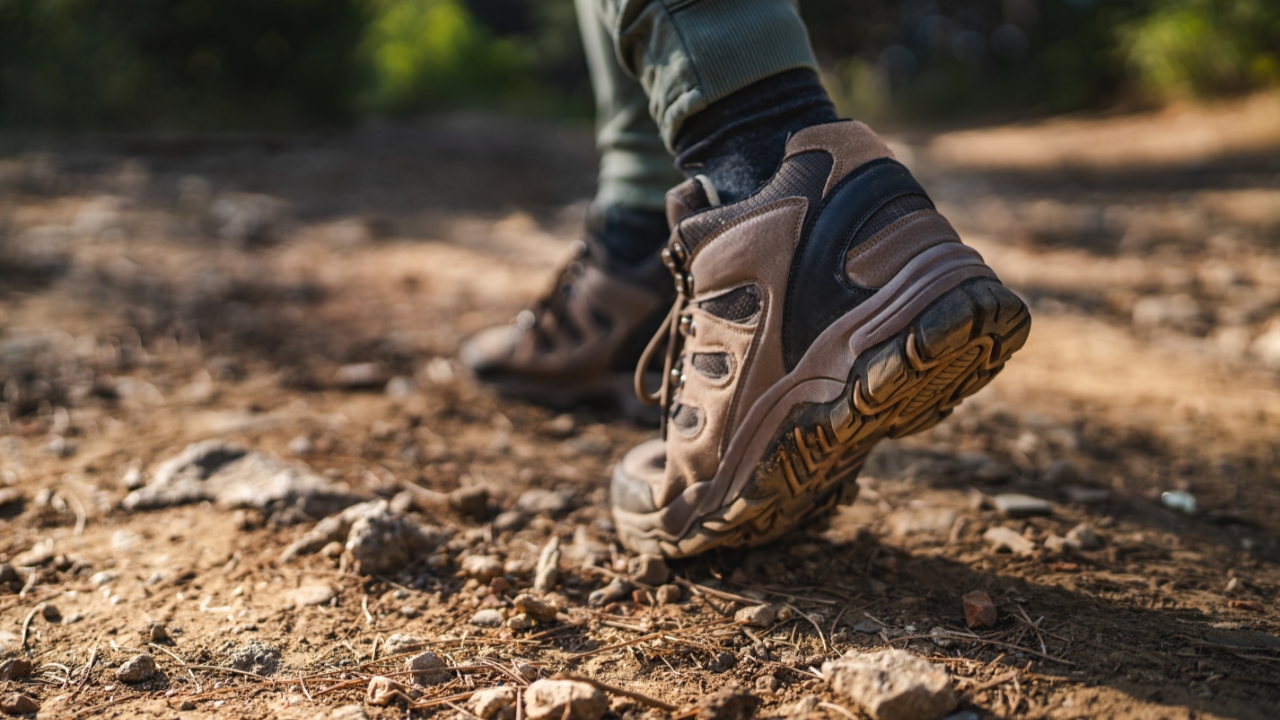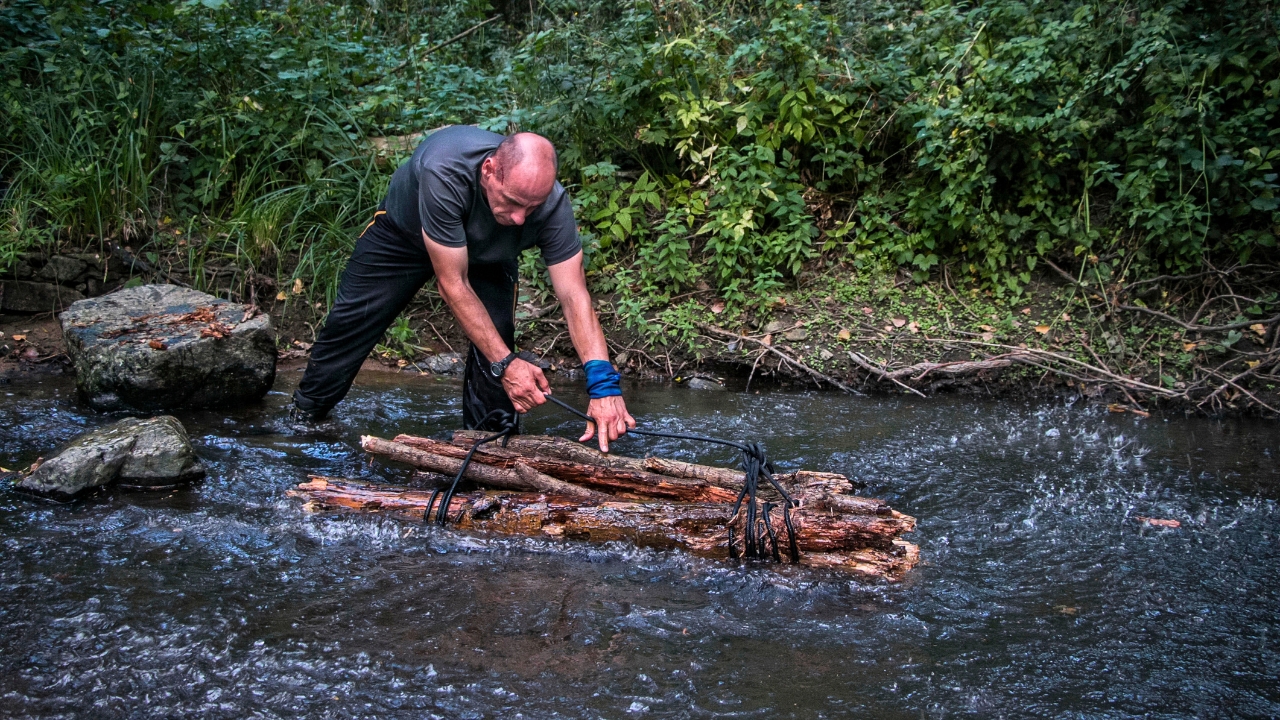When things go south, your mindset will determine whether you make it out or not. Skills and gear matter, but if your head isn’t in the right place, none of that will help you. Panic leads to mistakes, mistakes lead to bad decisions, and bad decisions get people killed. Staying calm, focused, and in control is the most important survival tool you have.
The problem is, stress messes with your thinking. Cold, hunger, exhaustion—it all adds up fast. Knowing how to manage your mind when the pressure is on isn’t just useful, it’s necessary. The good news? Mental toughness isn’t something you’re born with—it’s something you train.
Control Your Breathing Before Anything Else

Panic will take you down faster than hunger or cold. When adrenaline spikes, your heart rate jumps, your breathing gets shallow, and your thinking gets clouded. If you don’t get that under control, you’ll start making mistakes—ones that can cost you.
The moment you realize you’re in trouble, stop and take slow, deep breaths. Inhale through your nose, hold it for a second, and exhale through your mouth. Do this a few times until your mind clears. Panic makes bad situations worse, but steady breathing helps you stay sharp and focused on what needs to happen next.
Prioritize Tasks With the Rule of Threes

When survival mode kicks in, knowing what to do first can feel overwhelming. The Rule of Threes helps keep priorities straight: three minutes without air, three hours without shelter in extreme conditions, three days without water, three weeks without food.
If you’re exposed to harsh weather, shelter and fire come before anything else. If conditions are stable, water is your next priority. Food is important, but you can go longer without it than you think. Keep this framework in mind, and you won’t waste time or energy on the wrong things.
Keep Your Hands and Feet Dry

It doesn’t matter how tough you are—if your hands stop working, survival becomes a lot harder. Wet, frozen fingers can’t tie knots, handle tools, or build shelter. The same goes for your feet—if they’re wet and freezing, you won’t get far before blisters or frostbite take you down.
Always carry extra socks, and don’t ignore damp gloves or boots. If you have time, dry them out near a fire before things get worse. Trench foot and frostbite don’t happen instantly, but once they set in, they can end your chances of making it out in one piece.
Talk to Yourself Like You’d Talk to Someone Else

A survival situation will test your mind just as much as your body. Negative thinking leads to hesitation, hesitation leads to mistakes, and mistakes lead to real danger. The way you talk to yourself matters.
If you wouldn’t tell someone else, “You’re screwed, you can’t do this,” don’t say it to yourself either. Instead, keep your inner dialogue focused on action: “Find shelter,” “Get dry,” “Start a fire.” Survival is as much about mental resilience as it is about skill. Keep your head right, and you’ll make better decisions.
Stick to a Routine to Stay Focused

When survival stretches beyond a few hours, the days can blur together. That’s when mistakes creep in. Keeping a routine, even a simple one, gives your mind structure and keeps you from spiraling into panic or exhaustion.
Set specific times for tasks like gathering firewood, checking water supplies, or scouting for food. Even in a crisis, having a plan keeps you moving forward instead of just reacting. Small wins—like boiling enough water for the day or reinforcing shelter before nightfall—help you stay focused and remind you that you’re still in control.
Don’t Let Your Energy Crash

Survival isn’t a sprint—it’s an endurance game. If you burn through all your energy in the first few hours gathering wood or hiking for miles, you’ll have nothing left when you really need it. Pushing too hard without rest or food leads to exhaustion, bad decisions, and eventually, collapse.
Work in bursts, not marathons. Stay hydrated, eat small amounts when you can, and take breaks before you’re completely drained. If you feel yourself getting sluggish or lightheaded, stop and recover. Your body is your best tool in a survival situation—treat it like one.
Tenacity Is More Important Than Strength

Survival is about grit, not muscle. You can have all the skills in the world, but if you don’t have the will to push through the worst conditions, none of that matters. Hunger, exhaustion, and frustration will wear on you, and if you don’t know how to handle them, they’ll break you.
When things start going south, expect it to be mentally draining. Stress, fear, and fatigue can make even simple decisions feel impossible. Watch yourself and anyone with you for signs of burnout. Talk things through, focus on small wins, and remind yourself that survival is about putting one foot in front of the other, no matter how rough the path gets.
Adaptability Separates Survivors From Statistics

Survival isn’t about following a plan—it’s about knowing when to change one. If you try something and it’s not working, doubling down is a mistake. Too many people get caught up in what “should” work instead of focusing on what actually does.
If your shelter won’t hold, reinforce it. If your traps aren’t catching game, try a different setup. If you’re struggling to start a fire, find drier tinder. The key is staying flexible. The outdoors doesn’t care what worked last time—it only cares what works right now. The more adaptable you are, the better your chances.
You Either Put in the Work or Pay the Price

There’s no such thing as an easy day in a survival situation. If you don’t gather firewood while it’s light, you’ll regret it when the cold settles in. If you slack off on water collection, you’ll feel it when dehydration sets in. Half-done work leads to full-blown problems.
You don’t have to be the fastest or the strongest, but you do have to be consistent. Chop the wood, haul the water, reinforce the shelter. No one is coming to save you, and survival doesn’t give second chances to people who wait until the last minute. The work isn’t optional—it’s the only thing keeping you alive.
Creativity Will Keep You Breathing

Bushcraft isn’t about having the perfect gear—it’s about making do with what you’ve got. Sometimes, that means using things in ways they weren’t intended for. A shoelace can become a snare, a tarp can be turned into a boat, and tree sap can work as an adhesive. The people who survive aren’t always the most experienced—they’re the ones who can see solutions where others see dead ends.
Stop waiting for permission to try something. Test ideas, fail fast, and adjust. If it doesn’t work, learn from it. If it does, you just bought yourself more time. Out here, creativity isn’t about looking smart—it’s about staying alive.
*This article was created with the assistance of AI.






